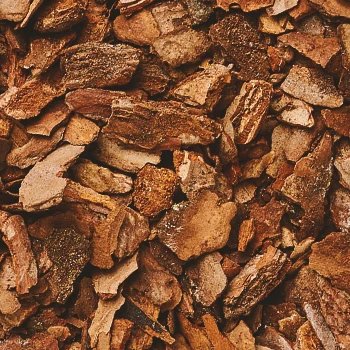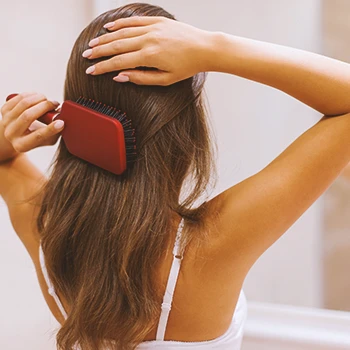In my medical practice, alongside providing health advice and nutritional guidance, I frequently assist patients in selecting nootropic supplements to enhance their focus and motivation during their wellness journey.
A patient recently shared concerns regarding the potential side effects of nootropics, specifically hair loss. I reassured them that these claims were not substantiated by solid evidence.
However, to reinforce my assurance, I undertook a thorough review of nootropic supplements by consulting with experts in the field, delving into scientific research, and meticulously analyzing each nootropic ingredient and compound for any links to hair shedding.
The following is a summary of our findings.
Quick Summary
- Scientific evidence does not link nootropics to hair loss; some may even promote hair growth and prevent hair loss.
- Genetics, hormonal imbalances, certain medical conditions, and stress are primary causes of hair loss, with male pattern baldness being the most prevalent form.
- An NIH study in mice shows that Ginkgo Biloba might help slow down hair loss while promoting hair regrowth.
- As a physician, I recommend careful dosage of nootropics and choosing quality products with third-party testing to ensure safety and effectiveness in preventing hair loss.
Do Nootropics Cause Hair Loss?

No, nootropics do not cause hair loss, as there is no scientific evidence to prove that they do.
On the contrary, some may actually help prevent hair loss.
Shortly, we’ll examine the individual nootropics and their effect on hair follicles. For now, let's look into what causes this issue in the first place.
What Causes Hair Loss?
The main cause of hair loss seems to be genetics.
Other causes, according to Mayo Clinic, include hormonal imbalances, medical conditions like hypothyroidism and hyperthyroidism, certain medications (for cancer, depression, and arthritis), and stress [1].
While hair shedding is an issue for both genders, male pattern baldness (androgenetic alopecia) is the most common.
Male Pattern Baldness
According to the National Institute of Health (NIH), male pattern baldness is believed to be caused by an androgen hormone known as dihydrotestosterone (DHT) [2].
While DHT is vital in the sexual development of young male adults, the excess may lead to hair thinning and eventual hair loss, especially for the genetically predisposed.
Female Pattern Baldness
Female pattern hair loss is the most common type in women.
“Although men’s hair tends to recede from the forehead or the crown of the head, women tend to notice thinning on the top third to one half of the scalp.” - Nicole Rogers, MD
The causes include aging, changes in androgen levels, family history, heavy loss of blood during menstrual cycles, and some medications.
Common Nootropic Ingredients and Their Effect on Baldness

There are two types of cognitive enhancers that we’ll look into:
- Synthetic nootropics
- Natural nootropics
Let's examine both to see whether they are linked to hair loss.
Synthetic Nootropics
These are lab-made pharmaceutical drugs, and while some are only available under prescription, others are categorized as supplements and can be given over the counter.
Let's examine 4 common synthetic compounds:
1. Modafinil
Modafinil is a prescription nootropic that can enhance brain function and mental performance.
It's one of those smart drugs that critics claim causes hair loss. But does it really promote hair shedding?
While there are many speculations, there is no concrete evidence showing that taking modafinil has any effect on hair follicles.
2. Adderall

From a medical standpoint, there is no definitive evidence linking Adderall directly to hair loss, although it is occasionally noted as a rare side effect.
In my clinical experience, it appears that side effects of Adderall, such as sleep deprivation and reduced appetite, are more probable contributors to hair loss.
The misuse of Adderall often results in heightened stress and anxiety, which could potentially lead to allergic reactions on the scalp, thereby exacerbating hair shedding.
3. Piracetam
There are no claims that piracetam causes hair loss. And after extensive research, we couldn't find any scientific literature associating it with alopecia.
4. Noopept
Like Piracetam, there is no scientific or speculative evidence linking noopept to hair loss.
Natural Nootropics

These are herbs and natural substances that can help improve brain activity. They include oils, whole plants, and parts of plants.
Let's examine 11 common organic nootropic compounds and see whether they can cause hair loss.
1. Caffeine
Caffeine is the world’s most popular nootropic, thanks to its benefits in improving mental alertness and concentration.
While it may have some adverse effects when used excessively, hair loss is not one of them. In fact, research by NIH shows that it may promote hair growth [3].
2. L-Theanine
A naturally occurring amino acid, L-Theanine, is commonly found in tea and mushrooms.
According to NIH, taking it boosts mental alertness and increases alpha waves in the brain that are associated with creativity [4].
Theanine has no links to hair loss, scientifically or speculatively. On the contrary, the calming benefit of this amino acid is useful in managing stress and anxiety, both risk factors for hair loss.
3. Bacopa Monnieri

I've noted that research indicates Bacopa Monnieri, a herbal supplement, can improve memory and information processing speed when used consistently.
From a clinical perspective, there is no evidence to suggest a connection between Bacopa Monnieri and hair loss.
Although some product manufacturers assert it aids in hair growth, these claims are anecdotal and lack robust scientific validation.
4. Lion’s Mane Mushroom
Taking Lion’s Mane replenishes neurochemicals and leads to more active brain cells.
A study by the National Institute of Health also shows that taking it results in 60.6% neurite growth, which makes it a great nootropic supplement [5].
Now, there is hardly any claim that Lion’s Mane may cause hair loss. Scientific materials supporting the claim do not exist.
Conversely, some sources claim that it might help prevent hair loss, especially when combined with Reishi mushrooms. Still, scientific studies on the subject are scarce.
5. Rhodiola Rosea

According to NIH, Rhodiola rosea’s cognitive benefits in stress resistance and in learning and memory improvement have seen the drug become one of the go-to natural nootropic compounds [6].
While there are scarce reports connecting this compound to hair loss, there are a few assertions that it might help prevent hair shedding, thanks to its stress-relieving benefits.
However, we couldn’t find concrete evidence supporting the claim.
6. Ginkgo Biloba
According to research from the National Library of Medicine, Ginkgo biloba has numerous health benefits for people with cognitive decline problems such as mild Alzheimers and dementia [7].
In regards to hair shedding, preliminary, an NIH study in mice shows that the compound might help slow down hair loss while promoting hair regrowth [8].
7. Panax Ginseng
Panax Ginseng is another popular ingredient in nootropics because it helps reduce brain fatigue and enhances cognitive performance in mentally demanding tasks.
An NIH study has shown that Panax ginseng has potential hair growth benefits and may also help in preventing hair loss [9].
8. Maritime Pine Bark Extract

Maritime pine bark extract is a common nootropic compound that helps those with cognitive decline.
According to research by NIH, Korean maritime pine bark can help prevent hair loss while promoting hair growth [10].
9. Ashwagandha
Ashwagandha extract is another common nootropic that helps protect the brain from damage caused by toxins, injury, and stroke.
In addition, one study by NIH investigating the effects of ashwagandha found that it could prevent hair loss and promote hair growth [11].
10. Choline

Choline can be found naturally in the brain. Some nootropic supplements contain the element because of the benefits of improving mental processing and memory.
No claims have been found of its association with hair loss, and neither is there scientific data showing the same.
11. Vitamin B12
Vitamin B12 (cobalamin) is another popular ingredient that you’ll find in nootropics because of its benefits in improving alertness and focus.
Scientists from the National Library of Medicine have found that a deficiency of vitamin B12 can lead to hair loss [12].
Can They Promote Hair Growth?

From my viewpoint, it's noteworthy that certain cognitive enhancer ingredients, including caffeine, Panax ginseng, ashwagandha, and marine pine bark extract, have been observed to promote hair growth.
Additionally, nootropics, which are effective in stress reduction, may also contribute positively to hair health.
The reason is clear: Chronic stress, a known factor in hair issues, elevates cortisol levels, adversely affecting hair follicles and potentially causing hair thinning or reduced density.
Therefore, I recommend incorporating brain enhancers into ypur health regimen to bolster your mental well-being, and serve as a preventive measure against hair loss.
Other common nootropics that can act as hair loss supplements because of their benefits in hair growth include:
- Green tea
- Pumpkin seed oil
- Ginger
Quality and Dosage Are Important

As a physician, I assure you that there's no direct risk of hair loss from nootropics, but it's crucial to monitor your dosage.
Misusing prescription nootropics like Adderall can lead to stress and anxiety, which may contribute to hair loss.
It's important to steer clear of low-quality supplements with unknown ingredients, as they might exacerbate hair loss.
Echoing pharmacist Manzoor Ahmad from DrugsBank, I recommend selecting nootropics verified by third-party testing or certification for quality. Adhering to the prescribed dosage is essential to prevent toxicity.
My team has evaluated various supplements and created a list of the best nootropic products. Below are the links:
Preventive Measures and Alternative Solutions
To address hair loss concerns related to nootropic use:
- Consider incorporating biotin-rich foods like eggs, nuts, and leafy greens into your diet.
- Ensure adequate protein intake for hair strength and consider supplements like collagen.
- Manage stress through meditation or exercise, as stress can contribute to hair loss.
- Choose nootropics with minimal side effects on hair, opting for compounds like ashwagandha or rhodiola.
- Use gentle, sulfate-free shampoos and conditioners, and consider adding hair-boosting ingredients like ketoconazole or caffeine.
FAQs
What supplements cause hair thinning?
The supplements that may cause hair thinning include selenium, Vitamin A, and Vitamin E.
What supplement keeps hair from falling out?
Biotin is the supplement that keeps hair from falling out. Vitamin B8 is required for the maintenance of healthy hair. Biotin aids in the creation of keratin, which is essential for the health of the hair, scalp, and nails.
References:
- https://www.mayoclinic.org/diseases-conditions/hair-loss/symptoms-causes/syc-20372926
- https://www.ncbi.nlm.nih.gov/books/NBK557634/
- https://pubmed.ncbi.nlm.nih.gov/17214716/
- https://pubmed.ncbi.nlm.nih.gov/18296328/
- https://pubmed.ncbi.nlm.nih.gov/24266378/
- https://www.ncbi.nlm.nih.gov/pmc/articles/PMC6288277/
- https://pubmed.ncbi.nlm.nih.gov/26268332/
- https://pubmed.ncbi.nlm.nih.gov/8254481/
- https://www.ncbi.nlm.nih.gov/pmc/articles/PMC6163201/
- https://pubmed.ncbi.nlm.nih.gov/35088884/
- https://pubmed.ncbi.nlm.nih.gov/22987912/
- https://www.ncbi.nlm.nih.gov/pmc/articles/PMC6380979/
About The Author
You May Also Like






